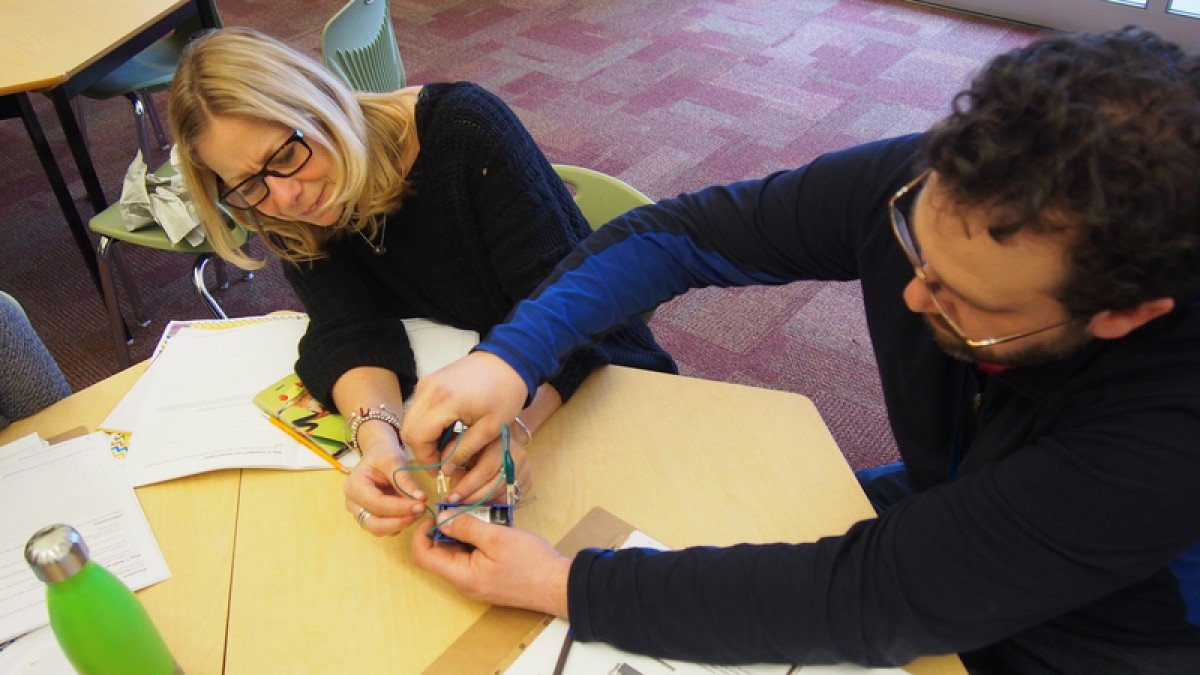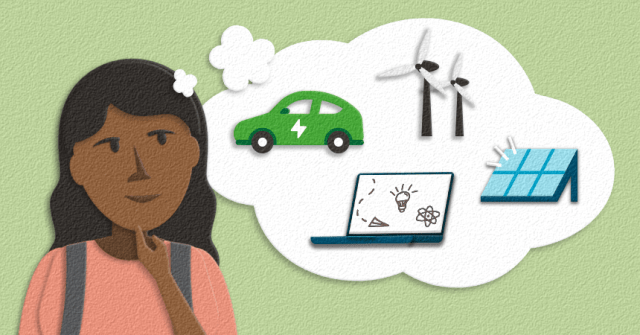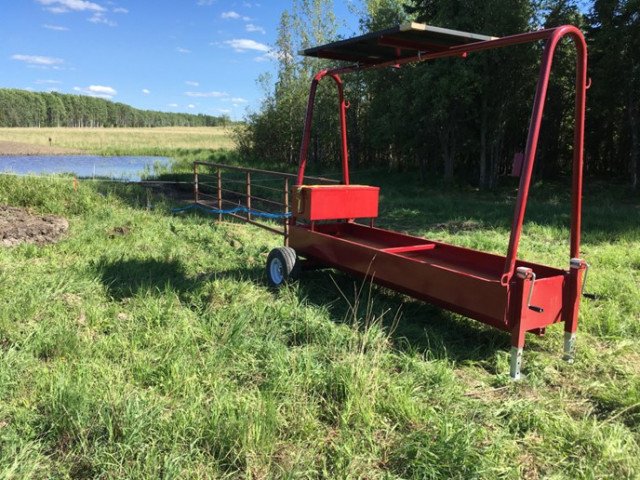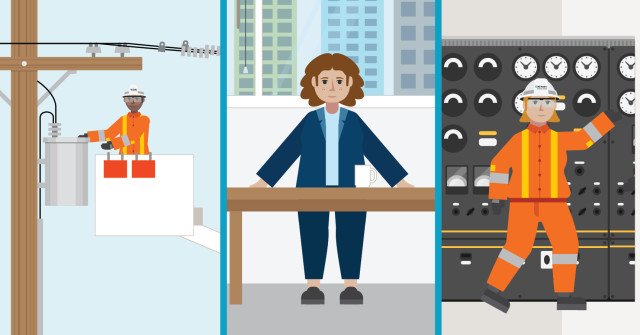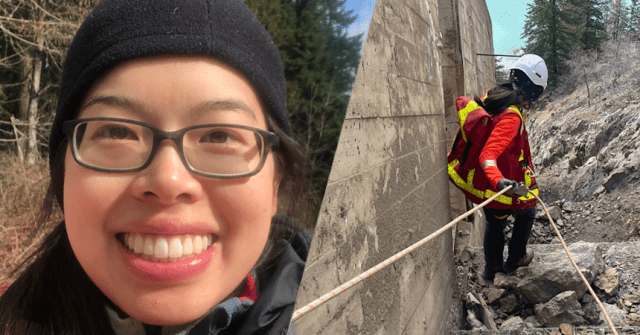A version of this story originally appeared on bchydro.com on March 31, 2017
Science teachers across B.C. are embracing the exploration of "Big ideas" as part of B.C.'s new curriculum, and it's their job to help students understand those ideas. BC Hydro's educational materials make the Big idea of electromagnetism a pretty easy sell to Grade 7 students.
"There's always one or two kids who already know about electricity," says Deanna Neustaedter, a teacher at Langley's Yorkson Creek Middle School. "But there's also a lot that are all about the joy of discovery. When I do the first lesson and just give them two alligator clips, a battery and a light bulb and say 'light it up', the kids that had never experimented with it are like "COME HERE! I MADE LIGHT!"
Neustaedter was part of a workshop for teachers at Yorkson Creek run by Wendy Lorch, who provided basics, insights and tips about resources and lesson plans. Neustaedter may have been a "student" at the workshop, but she's a longtime champion of BC Hydro's resources for students. And she's a fan of how the lessons have been tweaked to conform to the B.C. education curriculum's new focus on personalized learning.
The hands-on component includes building a basic circuit that will bring a light bulb to life, building an electric motor and building an electromagnet. That stuff is fun and informative, but what's new is the inquiry component of the program, where students choose an electricity generation option – anything from hydro, to solar, to wind or tidal power – and spend time researching and analyzing its pros and cons before presenting their findings to the class.
Neustaedter says the personalized research component makes it easier to maintain a student's interest. It's a way of ensuring that the "light" produced by the discovery of how to build an electrical circuit doesn't go out as the lessons roll along.
"With the research part, a kid might say 'I'm more interested in bioenergy than hydro', and then they get to research it," says Neustaedter. "If I dictate what they have to do, I don't get the buy-in. The kids definitely enjoy it more when it's about their own interests."
Three tips from a veteran
Here are Neustaedter’s three tips to getting the most out of the activities:
- "Practice it at home first. Get to know the materials and have those little tidbits of knowledge to share with them."
- "Let the kids explore. Let them go. If they have an idea and it's not going to cause damage, let them try the variables. That's where the most learning happens."
- "Take your class on a visit to BC Hydro's Powerhouse at Stave Falls Visitor Centre."
Check out the "Build an electromagnet" activity for Grade 7 students, and if you want to stay in the loop on future workshops and events, sign up for our Power Smart for Schools newsletter.
